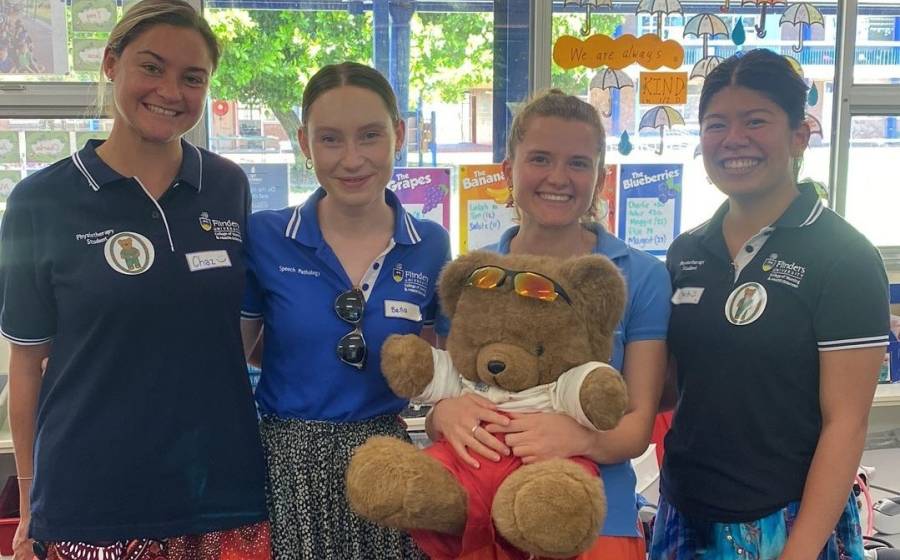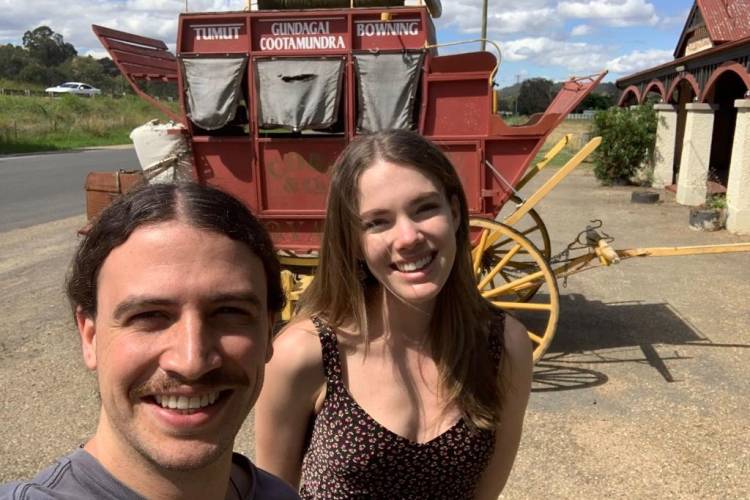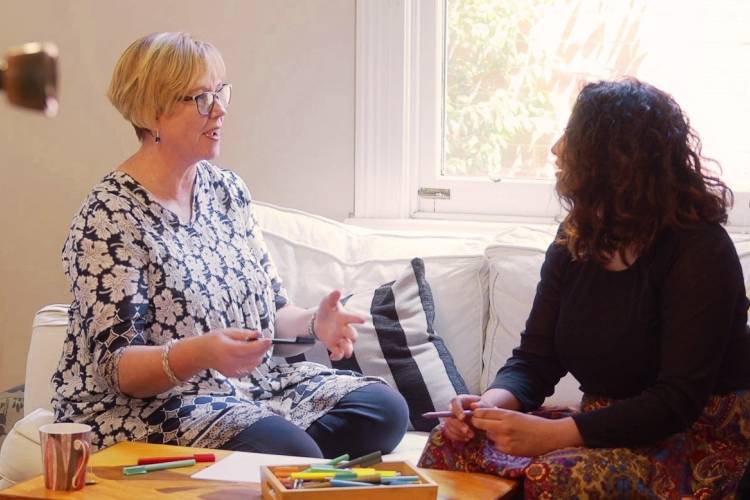High School to Health

If you can see it, you can be it
The Northern Territory’s High School to Health Careers Program (HSHCP) is one of many student immersion programs delivered by Rural Workforce Agencies across Australia.
Research has demonstrated that studying and undertaking work placements in rural locations has a beneficial impact on decisions to pursue a rural medical career on graduation. Immersion programs provide an opportunity for students to experience rural and remote lifestyles and culture and to explore career opportunities they may not have previously considered.
In 2022, 22 medical, nursing and allied health students from universities across Australia participated in the HSHCP which gives students an opportunity to:
- visit high schools in the Northern Territory and deliver hands-on workshops that promote health careers to school students,
- meet health professionals and learn from their experiences in rural and remote health, and
- participate in Indigenous cultural experiences.
Where HSHCP differs from other immersion programs is that it also aims to impact career decisions of school students in remote communities through engagement with young role models. University students visit primary and secondary schools and deliver hands-on workshops that inspire students to become the next generation of health professionals. This is a great way to:
- provide positive examples to high school students in remote areas to pursue a career in health.
- encourage school students in remote areas to stay at school and attain the best possible education.
- promote healthy lifestyles and healthy choices to school students.
- emphasise the multidisciplinary aspect of health careers.
“Many of our students had preconceptions about living and working remotely,” said Donna Green of the Northern Territory RWA. “This trip showed that there are pathways available for allied health practitioners to grow professionally and personally. Whether or not they decide that this is an option for them, they will at least return home with greater understanding and cultural knowledge, and an experience that they will never forget.”
2023 locations for the program include Jabiru, Maningrida, Nhulunbuy, Barunga, Katherine, Alice Springs and Darwin. The program is very ‘hands on’ with the health students involved in a variety of age-appropriate activities. High school students take part in a range of practical simulations, including:
- Stitch Up - a suturing station involving the students learning about wound management and how to do a simple uninterrupted suture and knot tying.
- Spot the Fracture - a radiology station teaching students how to read x-rays to diagnose fractures and other bony pathologies.
- Quick, help! - a first aid station focusing on snake bite and fracture first aid.
- Scoping out the Steth - a station revolving around how to use a stethoscope to listen to heart sounds, chest sounds and bowel sounds.
- Speaking of Speech Path - a station teaching students about speech pathology and the use of fluid thickeners to help patients with dysphagia.
Primary school students participate in a Teddy Bear Hospital. This is to promote key health messages and foster positive relationships with health professionals at an early age. It is a fun, interactive and educational initiative that raises awareness in children about the importance of healthy eating, hand hygiene, and sun safety.
“The High School to Health Program gives health students from around the country an opportunity to experience the Northern Territory, and for us to showcase this part of Australia as a place to live and work,” said Donna.
Across the country, there are a variety of programs being delivered by Rural Workforce Agencies in collaboration with universities, all with the objective of exposing health and medical students to rural life and to challenge stereotypes they may hold about living in rural and remote locations.
Graduate pipeline initiatives developed by Rural Workforce Agencies form an integral part of workforce planning strategies to address primary health care needs in regional, rural and remote Australia. The insights and experiences students gain will increase what they know about country practice and expose them to influential role models which will hopefully influence future considerations around a career in rural medicine.
For details of upcoming programs visit High School to Health Careers Program - Northern Territory PHN (ntphn.org.au).
March 2023




